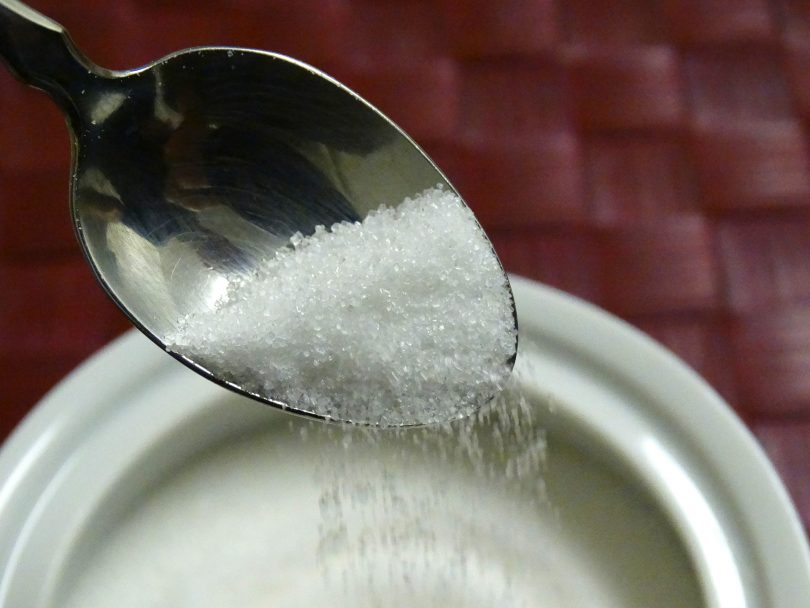Dr. Scott Lear is a member of the Division of Cardiology at Providence Health Care, is a Professor at Simon Fraser University and holds holds the Pfizer/Heart and Stroke Foundation Chair in Cardiovascular Prevention Research at St. Paul’s Hospital. Today he provides the scoop on the upsides and downsides of artificial sweeteners.
We’re a society focused on calories. At a young age we learn calories can help us lose or gain weight. Even if we don’t quite understand exactly what a calorie is, most of us think they’re something to avoid, or limit. So much so we want to eat our favourite foods without getting the calories. Enter artificial sweeteners.
Also known as sugar substitutes, artificial sweeteners are chemically created ways to sweeten food without the sugar, or the calories. And why not? Regularly eating refined sugar can lead to weight gain and increase your chances of a host of diseases from diabetes to cancer.
Let’s admit it. We all crave something sweet at one time or another. We can’t help it. Our body is designed to crave sugar. It’s one of the main tastes our tongue can distinguish. In times when food was scarce, tasting sweetness was a way for us to identify foods (such as fruits) that were full of energy.
Now with artificial sweeteners, you can literally have your cake, and eat it too. Minus the calories. But these sweeteners may not be as sweet and innocent as we’re led to believe.

The Skinny on Artificial Sweeteners
While the first artificial sweetener, saccharin, has been around for over a century, it wasn’t really until the ‘80s that widespread use took off. It’s probably not coincidence this was when rates of obesity were skyrocketing and weight loss programs were popping up.
There are seven common sweeteners approved for use in Canada and the US: advantame, acesulfame potassium, aspartame, neotame, saccharin, stevia (the lone natural sweetener) and sucralose. Cyclamate is another one used in Europe but banned in Canada and the US.
You’ll find artificial sweeteners in your favourite diet pop, calorie-reduced yoghurt and other foods, as well as table sweeteners. These foods have been cautiously recommended for people with diabetes, as they can help lower sugar intake while maintaining the sweet taste in one’s diet. However, daily limits have been set for each one ranging from 0.3 to 50 mg/kg of body weight per day. So these sweeteners are only recommended in small amounts.
If you eat artificial sweeteners, you’re not alone. Consumption has been on the rise for many years. Now more than 40% of adults consume artificial sweeteners. Most of this comes from diet or zero-calorie drinks. What may be as concerning is the 200% increase in consumption in US children since 1999. This is most likely due to the increased presence of low-calorie and processed foods (you don’t get artificial sweeteners in natural foods) in our diets.

In the Name of Weight Loss
Many people opt for these products in the pursuit of weight loss. This makes sense. You can still have foods you like without the calories and lose weight at the same time. But that may not be what really happens.
Consuming artificial sweeteners may not lead to weight loss and some studies have found they lead to weight gain. One reason could be is that we often use food as a reward. In some cases, you may be tempted to take that extra helping of food or bite of cake since you were good and had diet drinks all day. Something all of us do. However, it’s more than that.
Artificial sweeteners are actually sweeter than, well, you guessed it, sugar. Aspartame, at the low end, is 200 times sweeter than sugar, while neotame is more than 7000 times sweeter. And since our tastes can change based on the foods we eat, eating artificial sweeteners may lead one to have a super-sweet tooth. This could lead to even more cravings for sweet foods, leading to eating more calories.
At the same time, naturally sweet foods may start to taste bland. There is even potential for having a sweet addiction. Rats found a preference for water sweetened with saccharin over cocaine, and displayed behaviours similar to a drug addiction.
There have also been studies, which link artificially sweetened drinks to an increased chance of getting diabetes, dementia, stroke and early death in women. And it’s believed artificial sweeteners may damage the good bacteria in your gut as they do in mice. In doing so, artificial sweeteners may alter how sugar is metabolised in your body and increase your chances of getting diabetes.

Weighing the Evidence
The word of caution for all of these studies is they can’t tell if the sweeteners themselves are causing the disease or weight gain. It could be that people who are overweight turn to diet sodas and foods to lose weight, and these people could have underlying health issues. And of course, we don’t have great lab studies in humans like we do in rats and mice.
More robust studies haven’t found the consumption of foods or drinks with artificial sweeteners to lead to weight gain. But they haven’t been conclusive on resulting in weight loss either. The problem with most studies is they aren’t usually longer than six months. And anyone who has tried losing weight, you’ll know it’s easier at the start but much harder keeping it off. Importantly, these studies are nowhere near long enough to tell us how sweeteners effect our health.
Further complicating things is the fact that not all of these sweeteners are created equal. They’re all different in their molecular composition and likely how they’re processed in our bodies. This may explain why people in one study who drank saccharin added to drinks over 12 weeks gained weight compared to other sweeteners, while sucralose led to weight loss.
While the jury‘s still out on the long-term health effects of artificial sweeteners, it’s also not conclusive they’re harmless. Or whether they can be part of effective weight loss programs. Some have also said they should not be considered part of a healthy diet.
Whether artificial sweeteners are right for you may depend on your goals and how you incorporate them into your diet. As a replacement for regular sodas, the occasional consumption of diet sodas may be helpful. Keep in mind that artificial sweeteners are used in processed foods which themselves may be of questionable nutritional value. In the long term, turning to natural, less processed foods and drinking water is likely the best option.
This post originally ran on July 17, 2019 on Dr. Lear’s blog, Feeling Healthy with Dr. Scott Lear.






